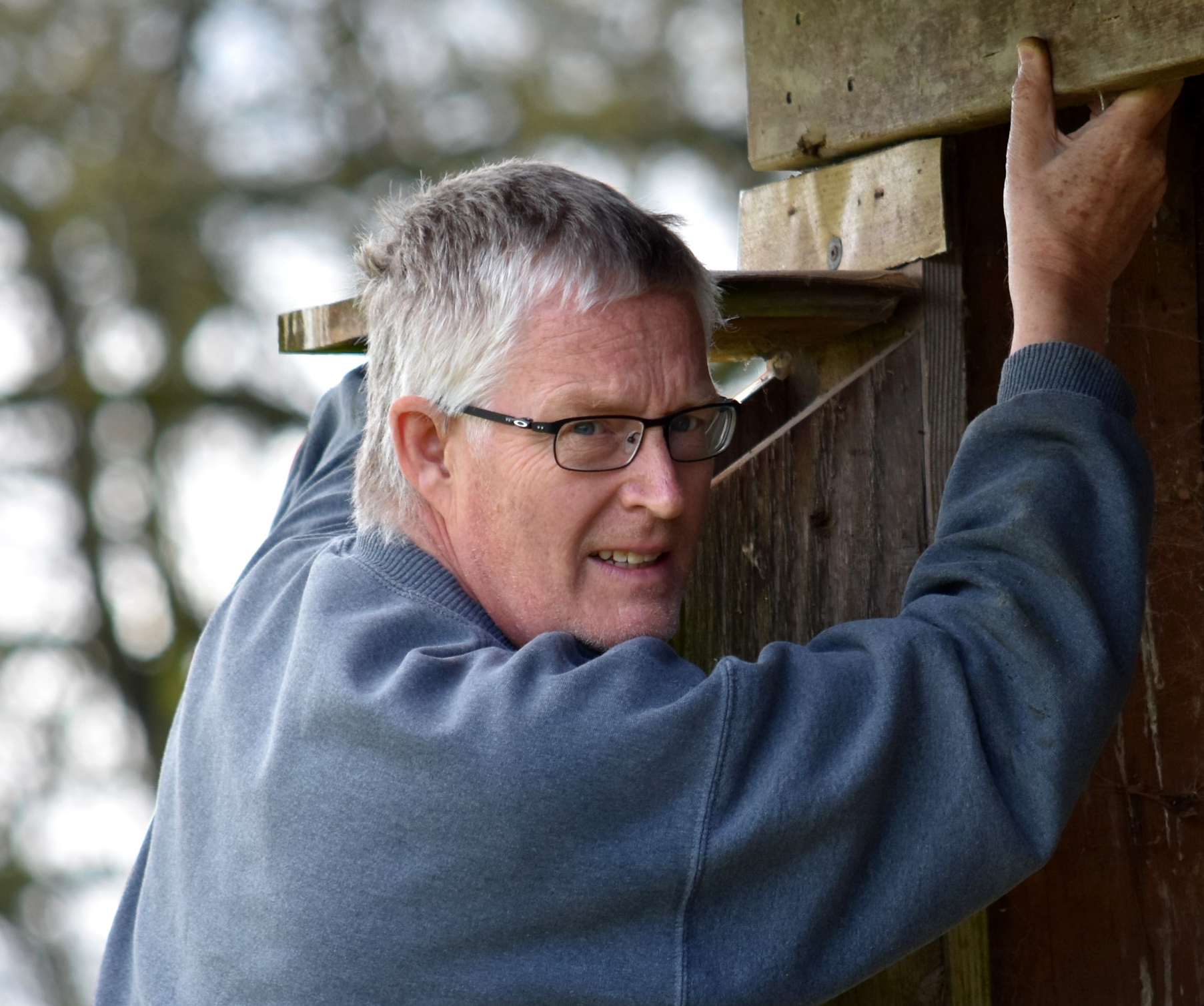Over the coming months, we will be profiling the previously announced winners of this year’s AOS awards in a series of posts on Wing Beat.
The AOS Loye and Alden Miller Research Award recognizes a lifetime achievement in ornithological research. It is named for noted father (Loye) and son (Alden) ornithologists from the Los Angeles State Normal School (now the University of California, Los Angeles) and the University of California, Berkeley, respectively, and is recognized with a medal and honorarium. This year’s Miller awardee is Dr. Tony D. Williams.
For the past 27 years, Dr. Williams has been on the Biological Sciences faculty at Simon Fraser University, as a member of the Centre for Wildlife Ecology with Environment and Climate Change Canada (ECCC, Associate Director 1994–2003) and as Department Chair (2003–2008, 2021–2024). He has made major contributions to the study of avian physiology via experimental and field studies of wild birds under natural conditions. In his research program, Dr. Williams and his students have focused on two major areas: physiological adaptations for breeding in birds, and conservation physiology and ecotoxicology of wildlife species.
Dr. Williams’ early-career work, on penguins in the sub-Antarctic and Snow Geese in the Arctic, examined the physiological mechanisms that underpin variation in reproductive traits (phenology, fecundity, parental effort) and life-history trade-offs (costs of reproduction). Using a novel approach, he stresses studies of individual variation instead of mean physiological responses, and takes a female perspective in the study of avian reproduction. Dr. Williams is currently investigating the role of exercise and training in free-living birds to understand how they can prepare for rapid transitions in workload or locomotor performance. His physiological studies have been based on laboratory studies with captive Zebra Finches, field studies of a nest-box population of European Starlings that are monitored with an automated radio-tracking system, and many research collaborations with colleagues working with seabirds, shorebirds, and songbirds.
Through his work with the Centre for Wildlife Ecology and ECCC, Dr. Williams has extensively researched the ecotoxicology of birds. He developed a better understanding of the mechanisms underlying individual and population-level variation in physiological traits to predict how animals might respond to environmental change and to develop new physiological approaches for ecotoxicology and avian conservation. Dr. Williams’ current work focuses on studying the effects of diluted bitumen, a non-conventional crude oil, on development, flight performance, and reproduction in birds. His work in basic science has advanced the field of avian physiology, and his applied work has been important for conservation and management for wildlife in the Pacific Northwest.
As a key element of his research program, Dr. Williams has made important contributions to training early career ornithologists. Between 2004 and 2007 he co-organized the E-BIRD project, the NSF/ESF/NSERC-funded international research network that contributed to the training of many graduate students that now occupy positions in universities across North America. From his own lab, 12 of his Ph.D. students and postdoctoral fellows now work as faculty members or senior researchers in ornithology in Canada and elsewhere.
Since 1996, Dr. Williams has produced three books and more than 260 peer-reviewed journal articles. His books include What Is a Bird?: An Exploration of Anatomy, Physiology, Behavior, and Ecology (2020, Princeton University Press), a new coffee table book on the natural history of birds; Physiological Adaptations for Breeding in Birds (2021, Princeton University Press), an academic book with an overview of the field of avian physiology; and The Penguins: Spheniscidae (1995, Oxford University Press), an early volume on the comparative biology of penguins.
AOS is honored to award Dr. Tony D. Williams the 2021 Loye and Alden Miller Research Award for his impressive contributions to basic and applied ornithology, which will form the basis of important new studies for years to come.
